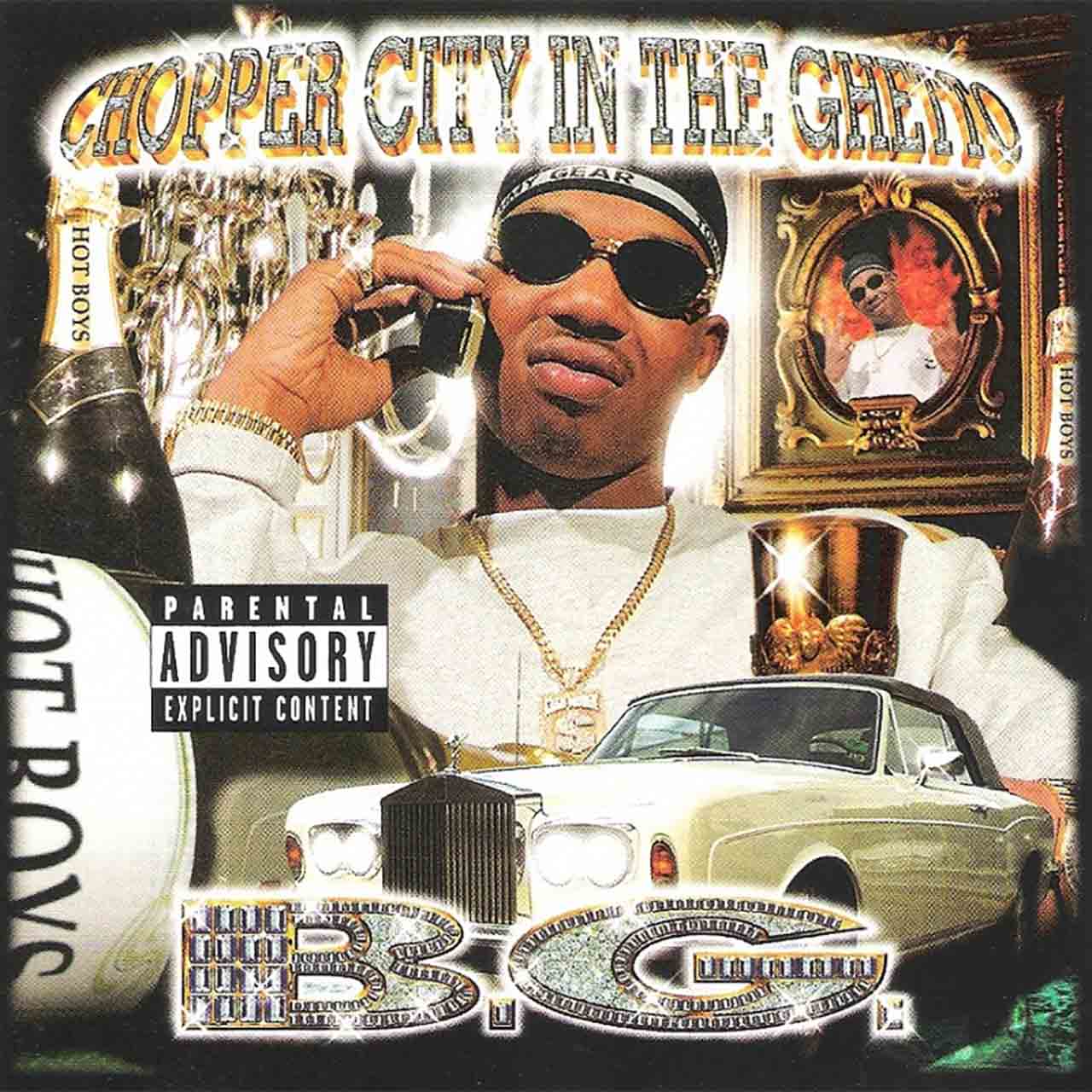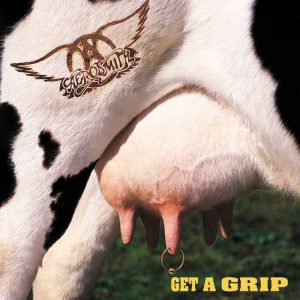Looking for the origin of the phrase “bling bling”? Look no further than B.G.’s album Chopper City in the Ghetto. But the story of that bit of slang is far more interesting than it may first appear. Since its release in 1999, Chopper City in the Ghetto has created a blueprint for Cash Money Records and rap acts to follow. Mannie Fresh credits the album as the guiding force behind what the record label has turned into, boasting artists like Lil Wayne and Nicki Minaj, who continue to break records and start trends in the mainstream. That initial pivot from bounce label to mainstream rap started with Chopper City in the Ghetto, the fourth studio album by B.G. The album debuted at No. 9 on the Billboard 200 in its first week and was certified Platinum by December 1999.
The 15-track album, entirely produced by Mannie Fresh, features appearances from fellow Cash Money Millionaires Baby, Big Tymers, Lil Wayne, and Juvenile. As Mannie would tell it, B.G. would come into the studio, with rhymes already in his head, and it was up to Mannie to figure out just how to make this record even bigger than the last. Before the two started working on Chopper City in the Ghetto, B.G. had its name already decided – an ode to his New Orleans neighborhood, Freret, and the lifestyle he lived. B.G.’s story is that after years of rapping in his school cafeteria and being asked to spit freestyles on the block, he met Birdman in a barbershop, who convinced him to hone his skills into a full-fleshed rap career.
Listen to B.G.’s Chopper City in the Ghetto now.
In an interview with ThisIs50, B.G. recalled getting his first Gold plaque and having Birdman say, “That ain’t shit. Don’t get excited about that. You ain’t did nothin yet. Stay focused.” So in 1999, when B.G. went on to release Chopper City in the Ghetto, he knew he needed a hit. The first single “Bling, Bling” was originally intended to be a Big Tymers song, but as Mannie Fresh described it to XXL, it was a hit that needed a home and Chopper City in the Ghetto was a perfect fit.
“Wayne had this song, way back in Cash Money, when he mentioned the word bling on a song,” Mannie Fresh told XXL, explaining the origins of the phrase. “And nobody thought it was relevant. I always thought, Man, that’s something major. So when I wrote the hook to ‘Bling Bling’ – because originally it was a Big Tymers song – whenever we played it in the studio, people would say, ‘That’s the one.’”
Of course, the phrase “Bling Bling” would go on to be included in the Merriam-Webster Dictionary and become a pop culture staple, and the song would hit No. 36 on the Billboard Hot 100. The influential track even surprised Cash Money at the time, but Mannie knew it was what they needed to make Chopper City in the Ghetto hit the masses.
“It was gonna be a family song on the Big Tymers album,” Mannie Fresh told The Fader. “But after I listened to B.G.’s album, I was like, ‘This shit is so heavy and dark you need at least two songs that’s completely different from any of that.’”
“Bling Bling” wasn’t the only success off the album; standout songs like “Cash Money Is An Army” showed just how close the bond of the label was at that time. “We had a couple of record companies that was coming up under us, and they felt the way to get on is, ‘I’ll take a jab at Cash Money,” Mannie Fresh told XXL. “So B.G. felt like, ‘I’m going to shut all of that down.’”
The legendary status of B.G. as a rapper is cemented in music history, and Chopper City in the Ghetto remains one of his – and Cash Money’s – greatest accomplishments. “I just do what I do – I rap for the streets and as long as I make the streets happy, I’m happy,” B.G. told Rap Reviews years ago. “You know when people be saying about mainstream and crossing over and this and that, well everytime I ever been in the studio or everytime I ever recorded or everytime I ever did anything, I don’t think mainstream or crossover because I really don’t believe in crossing over, I feel like I make the game cross over to me.”
Looking for the origin of “bling bling”? Listen to B.G.’s Chopper City in the Ghetto now.
Note: This article was first published in 2019.




